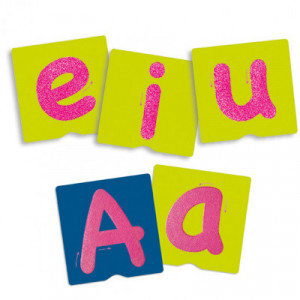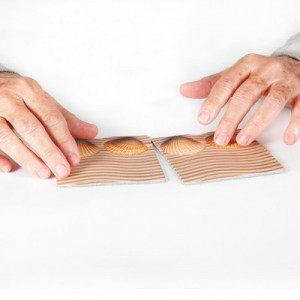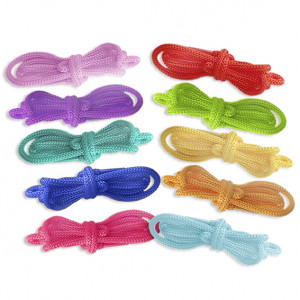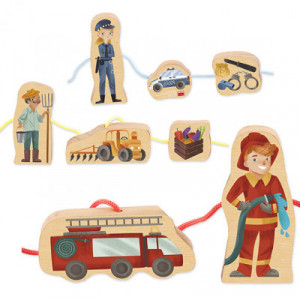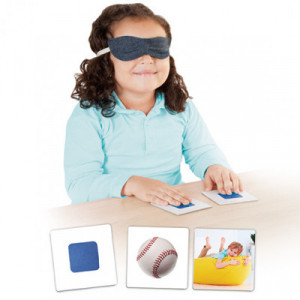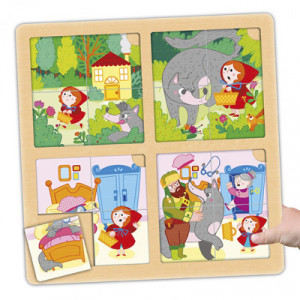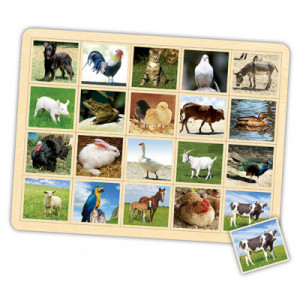Montessori Methodology Games
Our games and materials inspired by the Montessori Methodology help children develop their curiosity and creativity while learning and enjoying each learning. They make it easy for them to discover the world in their own way and at their own pace. These games invite you to touch, experience, feel and discover through sensations and senses.

Set of puzzle-sequences: the three little pigs and cinderella (2 units)
Get to know the Montessori method
Dr. Maria Montessori developed an educational system focused on children's learning capacity. According to Montessori, if children are allowed to learn freely in their early stages of maturity, they will become adults with great abilities to solve problems that arise in life. Today, tens of thousands of schools have adopted the Montessori method which, with books, games and lessons, is able to attract children and adolescents from zero to adulthood.
The Montessori method, inspired by a constructivist psychopedagogical model, uses books and games that are specially chosen to trigger the desire to learn and to know. Maria Montessori developed this alternative way of educating children at a time when there was a very rigid and severe atmosphere in the classroom; students had to stand still in the benches and were forced to listen to hours and hours of academically expressed lessons. Today, although the Montessori Method has not been officially adopted in many schools, there is much influence from it, especially in aspects such as furniture or the choice of books and games.
Montessori method games and books
The influence of the Montessori method translates into youth-friendly classrooms, where there are fewer desks and more educational games where the child is the protagonist and uses his or her imagination, or educational story books that require the animated participation of readers. In early childhood, children play with commonly used objects, experimenting spontaneously with their sound, consistency and balance. Montessori games for children between the ages of one and three offer the little one the opportunity to perform simple manipulations: sorting, stacking, recognizing sounds and matching colors.
Montessori games are part of an educational project that affects sensory development. According to the famous educator, the stimulation and refinement of the senses broadens the field of perception of each child, providing an increasingly solid and rich foundation for the development of intelligence. Through the senses and movement, the child explores the environment and acquires the operational ideas necessary for abstract thinking.
Consequently, the Montessori method assigns a central role to activities that stimulate physical growth and the formation of psychic sensory skills (especially in the 3-6 years). To this end, the sensory material of the different Akros games helps each child to train all their skills. These are games and toys classified according to a specific physical quality of their pieces, such as a state of roughness, color, shape, size, sound, weight, flavor and so on.




